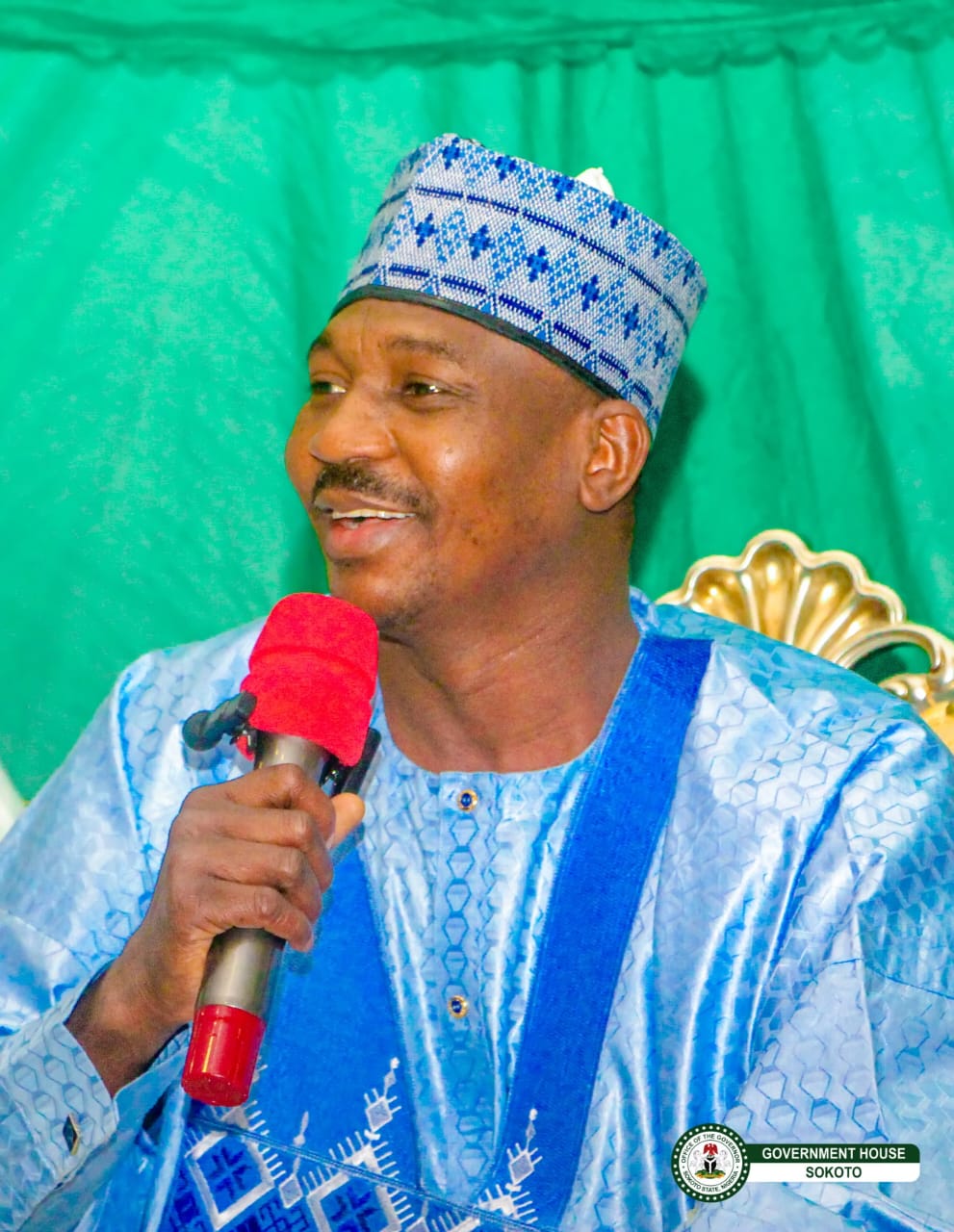By Mohammed Bwago
In today’s world, genuine development is measured not only by the number of roads built or the buildings erected but by the material well being of the people who walk the roads and live within the walls. Governor Ahmad Aliyu’s administration in Sokoto State has placed this understanding at the heart of its governance philosophy, making human capital development the nucleus of its agenda. Through targeted initiatives that promote youth and women empowerment, and agricultural production, the administration has set in motion a quiet but transformative revolution, one that seeks to build people and infrastructure side by side, and in doing so, build a stronger, more stable society.
At the heart of this vision is the belief that empowerment is not an act of charity but a sustainable investment for the future. By nurturing human potentials, Governor Ahmed Aliyu is creating the conditions for an all inclusive economic development, social cohesion, and long-term peace.
From the onset of his administration, Governor Aliyu articulated a clear development blueprint anchored on a 9- Point Smart Agenda that prioritizes healthcare, local government autonomy, religious affairs, education, agriculture etc. His approach is a departure from the traditional focus on physical infrastructure alone. It recognizes that without empowered citizens, even the most impressive structures remain lifeless. This explains why his administration has prioritized education, skills acquisition, and economic inclusion, key pillars that will ensure that the people of Sokoto State are not left behind.
Education remains the cornerstone of this vision. Recognizing that decades of underinvestment in education have stifled opportunities for young people, the Governor Aliyu administration launched several interventions to revitalize the sector. Over 350 schools have so far been rehabilitated across the state, while more than 1,200 qualified teachers have been recruited. The state government has also provided scholarships to indigent students pursuing secondary and tertiary education, ensuring that financial barriers do not hinder learning. These measures aim not only to improve literacy and numeracy but also to nurture critical thinking, creativity, and innovation—qualities essential for entrepreneurship and self-reliance.
Sokoto State, like much of the North ,has a youthful population nearly 65% under the age of 30. This demographic reality presents both a challenge and an opportunity. Governor Aliyu understands that if properly harnessed, the energy and creativity of young people can drive economic growth and social stability. Through the Youth Entrepreneurship and Skills Acquisition Programme (YESAP), over 8,000 young men and women have received practical training in trades ranging from tailoring, welding, and carpentry to ICT, agriculture, and digital marketing. Beneficiaries have not only been trained but have also been provided with start-up kits and seed capital to commence their businesses immediately.
Take the story of Aisha Bello, a 27-year-old graduate who had struggled with unemployment before enrolling in one of the state’s ICT training centres. Today, she runs a thriving digital consultancy firm employing three other young graduates. “Before this programme, I was completely dependent on my parents,” she says. “Now, I’m independent and even helping others earn a living. The Governor Aliyu administration has truly changed my life.” Such personal stories are becoming increasingly common across Sokoto, each one adding to the growing evidence that empowerment, when done right, is the most powerful engine of growth.
Beyond entrepreneurship, the administration’s investment in vocational training aims to restore dignity of labour and provide a lifeline for those outside formal education. Through the rehabilitation of seven technical colleges and the establishment of fifteen community-based skills centres, the government has created multiple pathways for learning and earning. These centres are strategically located to serve rural and semi-urban communities, ensuring that even those in remote areas can access training opportunities. The curriculum is tailored to local industry, such as pottery, leatherwork, textiles, and agro-processing, allowing the trainees to build businesses that would thrive.
A young craftsman, Abdulrahman Usman, who graduated from one of these centres, shared his experience: “Before, I used to idle around the village with no prospects. After my training in leatherworks, I now make shoes and bags that are sold not just in Sokoto but in neighbouring states. I have also trained five apprentices. This is what empowerment truly means giving people the tools to change their lives.”
No society can progress when half its population is marginalized. Understanding this, the Governor Aliyu administration has made women’s empowerment a central component of its human capital strategy. Through the Sokoto Women Empowerment Initiative (SWEI), over 10,000 women have received support in the form of grants, soft loans, and training in small-scale business management. These programmes have not only lifted families out of poverty but have also enhanced the voice and participation of women in development.
One shining example is Hajara Musa, a widow from Gwadabawa who benefited from the SWEI microgrant scheme. “I used the ₦50,000 grant I received to start a groundnut oil business,” she recounts proudly. “Today, my children are back in school, and I can feed my family without begging. This programme gave me back my dignity.” Beyond economic empowerment, the government’s focus on maternal and child health services ensures that women are healthy enough to participate fully in social and economic life. The renovation of primary health centres in all 23 local government areas, recruitment of midwives, and provision of essential drugs are all part of this comprehensive approach.
True empowerment must also extend to those unable to help themselves, especially the elderly, people with disabilities, and the poorest of the poor. Governor Aliyu’s social protection programmes provides this essential safety net. Through conditional cash transfers and community feeding schemes, the administration supports thousands of vulnerable households, easing the burden of food insecurity and healthcare costs. These measures not only improve the welfare of the people but also enhance social stability by reducing inequality and resentment.
While the progress so far is commendable, sustaining these empowerment programmes will require continuous funding, effective monitoring, and private-sector participation. Ensuring that beneficiaries remain productive and that resources reach the grassroots without leakages is a long-term challenge the administration will continue to address. Still, the momentum of progress is undeniable. Youths who were once excluded are now entrepreneurs. Women who were once voiceless are now business owners. Families that once struggled now have hope and a means of livelihood.
Economically, the multiplier effects are visible: small businesses are springing up, local industries are reviving, and rural-urban migration is slowing down. The focus on skills and self-reliance is creating a more diversified and resilient economy, one that depends less on government jobs and more on private enterprise and innovation. Governor Ahmad Aliyu’s vision of “development with a human face” is therefore not just a slogan but a lived reality. It is an approach that sees empowerment not as a one-time intervention but as a continuous process of unlocking potential and promoting dignity.
As Sokoto State continues on this path, it stands as a model for others, a reminder that true development begins when governments invests in people. For Ahmed Aliyu, empowerment is not just a policy; it is a legacy.






Join the Conversation